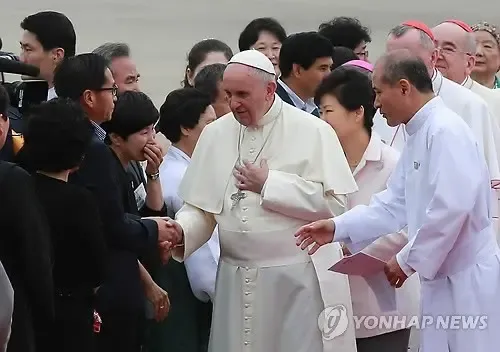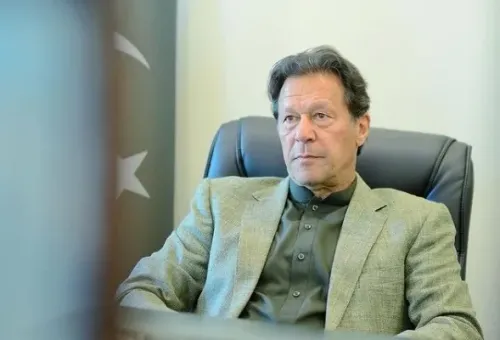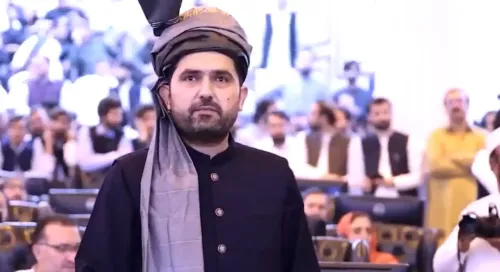Pope Francis Honored in South Korea for His Kindness and Peaceful Message

Synopsis
Key Takeaways
- Pope Francis was a symbol of hope and peace for South Korea.
- He prioritized inter-Korean relations during his papacy.
- His visit in 2014 left a significant impact on marginalized communities.
- The Pope's messages transcended religious boundaries.
- His commitment to social issues resonated with many.
Seoul, April 21 (NationPress) The passing of Pope Francis, who had long aspired for harmony on the divided Korean Peninsula, sparked profound sorrow among South Koreans on Monday.
The pontiff was cherished by both the nation’s Catholics and non-believers as a spiritual guide who exhibited immense compassion and a unique fondness for the nation.
He selected South Korea as his inaugural destination in Asia after his papal election in 2013 and appointed two of the four Korean cardinals to date. Under his guidance, Seoul was chosen to host the 2027 World Youth Day, becoming the second Asian country to hold the event, following the Philippines in 1995.
He kept a close dialogue with South Korean Presidents, persistently demonstrating a robust interest in peace on the Korean Peninsula and inter-Korean relations.
During his five-day visit to South Korea in 2014, he engaged with those who were suffering or marginalized, including survivors of Japan's wartime sexual slavery—commonly referred to as "comfort women"—and individuals with disabilities.
He provided them with comfort and instilled hope in Korean society, leaving a lasting impression through his humble and unassuming nature.
"I wanted to meet him again and express my gratitude in person," Kim Young-oh, the grieving father of a Sewol ferry disaster victim, shared with Yonhap News Agency on Monday regarding the pontiff's death. He met the Pope in August 2014 on the 34th day of his hunger strike seeking the truth behind the tragic sinking that resulted in 304 deaths that April.
"When I believed no one would support us, the Pope was the one who gave us the greatest strength," he reflected, noting that their encounter garnered significant media attention worldwide.
The news of his passing brought tears to Lee Young-su, an activist and one of the comfort women. "He must have gone to a good place," she said.
During his Mass at Myeongdong Cathedral, the final event of his visit to South Korea, the pontiff invited seven comfort women to the front row.
"Meeting him brought me immense peace, yet I am saddened that I couldn’t meet him again after that," she expressed, adding: "He was someone who only did good things. I will pray for him."
Ven. Jinwoo, head of South Korea's largest Buddhist sect, the Jogye Order, joined in mourning the loss of Pope Francis, extending his deepest condolences to Catholics globally.
"The Pope was someone who transcended religious boundaries and shared in the suffering of humanity with humility and compassion," he remarked.
As early as September last year, Pope Francis voiced concerns over the ongoing division of the Korean Peninsula during a meeting with South Korean bishops at the Vatican.
At that time, he highlighted the forthcoming World Youth Day, an international Catholic youth gathering planned for Seoul in 2027, urging the Korean bishops to engage actively with young people and pay close attention to their voices, acknowledging that there is much to learn from them.
The Pope also expressed concern regarding the treatment of rural communities and the elderly in South Korea, urging individuals to take tangible actions in their daily lives to safeguard the environment.
Whenever the country confronted significant tragedies—such as the crowd crush in Seoul's Itaewon in 2022 that resulted in 159 fatalities and the plane crash in Muan in December that took 179 lives—the Pope consistently offered words of solace and prayers.
Just last month, the Pope expressed his worries over the wildfires that devastated the southeastern regions of the country and sent his condolences to those grieving the loss of loved ones, as reported by Yonhap news agency.
Pope Francis has expressed his eagerness to visit North Korea multiple times, stating he would go if invited. Former South Korean President Moon Jae-in, a Catholic, met with him twice in 2018 and 2021 to discuss the potential for a papal visit to Pyongyang.









